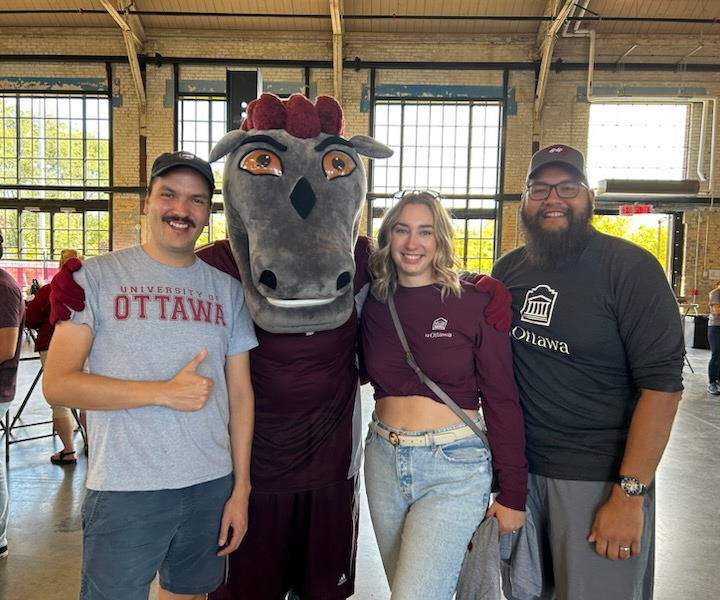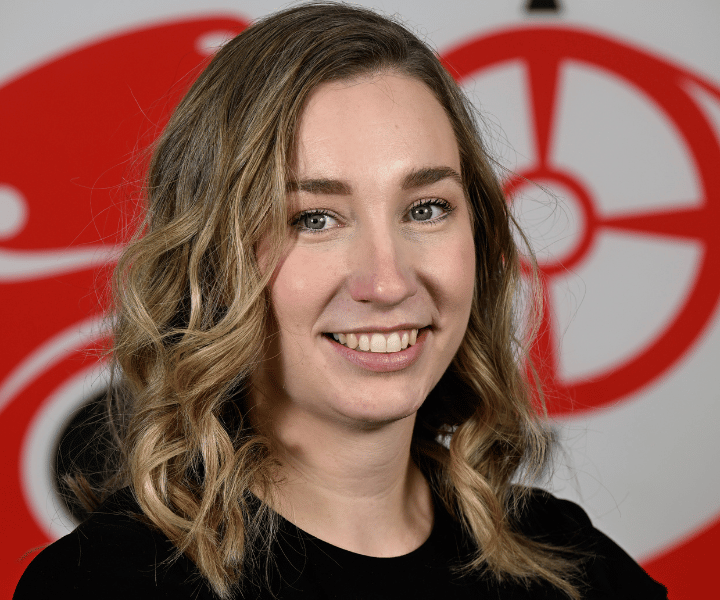A three-time uOttawa graduate, Renee (BA ’11, BEd ’13, MEd ’16) is the Director of Languages and Learning with the Assembly of First Nations (AFN). Renee, who is a member of Rama First Nation, also sits on uOttawa’s Indigenous Alumni Council, an engagement she describes as a way to “give back and connect with the community.”
That spirit of support and community have been themes throughout Renee’s life. Growing up in downtown Toronto, school was a struggle as she worked to overcome the challenges presented by her being dyslexic.
It was with the encouragement of a high school teacher that she decided to pursue a university education. uOttawa was a top option—its downtown campus, relative proximity to Toronto, and ethics and society program were appealing.
Meanwhile, Renee had realized the importance of having a supportive educational environment. “I was told a lot in school that I would never make it because of my learning disability,” she shares. “When I look back on my educational experience it was the good teachers who made the difference. I wanted to be a part of that.”
After completing a pair of uOttawa bachelor’s degrees, Renee started her master’s of education the very same day she began working as an early childhood educator at Makonsag Aboriginal Head Start. As one of Ottawa’s only Indigenous-led childcare spaces, the Head Start was in high-demand because of its cultural programming.
Though her role involved supervising two to six-year-olds, Renee found herself working just as closely with the families and guardians of kids: “Indigenous families need additional support, especially in urban centres. The network you may have had at home or wherever you’re originally from doesn’t always exist.”
Renee describes the Head Start’s cultural component as a vital way to bring people together and help smooth a child’s transition into the public school system. It was also a learning opportunity for Renee. “The experience helped me grow as a First Nations person and become more connected to culture,” she says. “I grew up away from my community, so I was really learning alongside the children.”
Renee’s time at the Head Start also helped focus her academic studies. After finishing her shift each day, Renee would turn her attention to her master’s research, examining how society could better support Indigenous students in their educational experiences. This research continues to inform her work at the AFN today.

From practice to policy making
Finishing her master’s in 2016, Renee landed a dream job, working as a policy analyst, education, with the AFN.
Her career transition was well timed—the federal government had recently allocated $2.6 billion to support First Nations education transformation. After a year of meetings with national and regional groups across the country, Renee was part of the team that put forward a policy proposal for a new funding approach to First Nations on-reserve education.
“My involvement in First Nations education transformation is probably what I’m most proud of,” reflects Renee. “First Nations are now able to negotiate agreements with the federal government to fund their education system on a needs basis. This didn’t exist before.”
Renee points to other policy changes, including additional investments in language revitalization and culture, and the ability for First Nations to implement a full-day kindergarten program.
Despite the progress, Renee says there’s still a lot of work to be done and investment needed: “Sometimes it’s hard to be in the policy realm. I’ve seen the significant changes that we’ve made, but how they’ve trickled down to the community level isn’t always as obvious. Change takes time, and we’re talking about future generations of students who might be impacted.”
Now the Director of Languages and Learning, Renee plans to stay with AFN for the foreseeable future, working towards further policy changes, especially at a post-secondary education level. It is in this way that there is crossover with her involvement on uOttawa’s Indigenous Alumni Council.
“A lot of our work around post-secondary education talks about the circles of support that First Nations students need in order to succeed, because we’re generally asking them to leave a community and go to a city,” explains Renee. “That’s the work that we’re interested in at the AFN, and I think being involved with uOttawa could be helpful for some of those pieces.”
Whether it’s current or future endeavours, Renee is determined to keep education as a central pillar in her life: “Even though I’m in policy and management, it’s important that I have a connection to education, even when other parts of my life are changing. I always want to hold onto that.”


